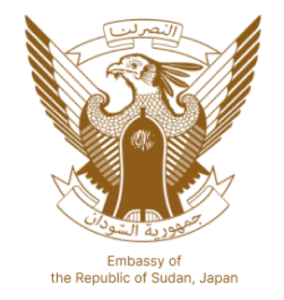THE SUDANESE PEOPLE

These rights which include:
- Life and dignity of the human being
- Individual freedom
- Freedom from slavery and bondage
- Equality before law
- Women and child rights
- Immunity against torture
- Just trial
- The right of litigation
- Restriction of capital punishment
- Right to privacy
- Right of belief and worship
- Right of expression and information
- Right of gathering and organization
- Right of franchise
- Freedom of movement and domicile
- Right of ownership
- Right of education
- Right of the handicapped and old age
- Public Health Care
- Ethnic and Cultural minority rights
- Sanctity of these rights and freedoms
The constitutional and competent courts uphold and protect provided therein and further monitored by the Human Rights Commission.
National Capital
Given its unique status as token of national unity, a mirror reflecting Sudan’s diversity and a miniature of the country’s different tribal components, ethnic, cultural and religious groups, the national capital was singled out by the constitution and devoted to it a special chapter. Article 154 of chapter 10 underscores respect of human rights in the national capital. Article 156 on the dispense of justice in the national capital reads:
a) Tolerance shall be the basis of co-existence between the Sudanese irrespective of their cultural, religious or traditional backgrounds
b) Any behavior stemming from cultural and traditional practices not violating the public order nor degrading other’s norms or contravening the law shall be considered by law as exercise of individual freedom
c) Individual privacy may not be violated and courts shall not accept evidence acquired by trespassing such privacy
d) In exercising its jurisdictional powers in meting out sentences against non-Muslims, Courts shall consider the established principle in Islamic Sharia that non-Muslim population is not subjected to the prescribed harsh punishments according to law
e) Leniency and benefit of the doubt in favor of the accused are two law principles required at universal level and in Sudan’s circumstances. Interim constitution of Khartoum State for the year 2006 provides that Khartoum, Sudan’s national capital, resembles national unity and manifests Sudan’s diversity where religions, traditions and cultures are the source of strength, concord, inspiration and basis of national cohesion and where rights of non-Muslims shall be protected according to article 157 of the country’s Interim constitution of 2005. Meanwhile, the constitution entrusted the constitutional court with the basic rights and freedoms, deciding constitutionality or otherwise of laws and provisions in being consistent with the constitution, the interim constitution of South Sudan or the concerned state constitution (article 122).
Special Commission for Rights of non-Muslims in the National Capital
Enshrined in the constitution and to protect the principles that religions and beliefs are source of moral strength and worship is availed to followers of all religions and beliefs and that, accordingly, no person shall discriminated against besides that non-Muslims shall not be affected by application of the Islamic Sharia in the national capital, the constitution incepted the special commission for rights of non-Muslims in the national capital to ensure enforcement of the said law provision. The commission accomplished many tasks, including, inter-alia:
- Initiated the call for coordination and cooperation and visited the Religious Co-existence Council, the people’s Friendship Council, Churches, non-Muslim cemeteries and leaderships of many other institutions
- Appointed a number of officials in the justice-dispensing agencies on permanent basis and responsible to the Commission
- Drafted a five-year plan of action for the period 2007-2011
- Took part in meetings of the religions’ dialogue conference held in Khartoum in 2009
- Invoked a decision by the Justice Ministry setting up a special attorney for non-Muslim rights and a consultative unit within the Justice Minister’s office to liaise between the commission and the said ministry
- Organized a workshop on rights of non-Muslims between the law letters and actual application.
- Vacated non-Muslim cemetery in Sahafa local marketplace and turned over the site to the concerned authority, the All Churches Council of Sudan
- Furnished mail boxes for complaints and proposals besides appointing help committees in refugee camps
- Worked towards disseminating the culture of peace
In addition, the commission have an action plan in stock aimed at gathering and documenting various tribal customs and traditions, resolving the procedure of swearing on the bible before courts, tackling the shortage of theology teachers in Christian schools, coordinating with the religions coexistence council in the spread of peace culture and policy, settling questions irking non-Muslims in addition to many other projects.
E-mail: info@sudanembassy.jp


